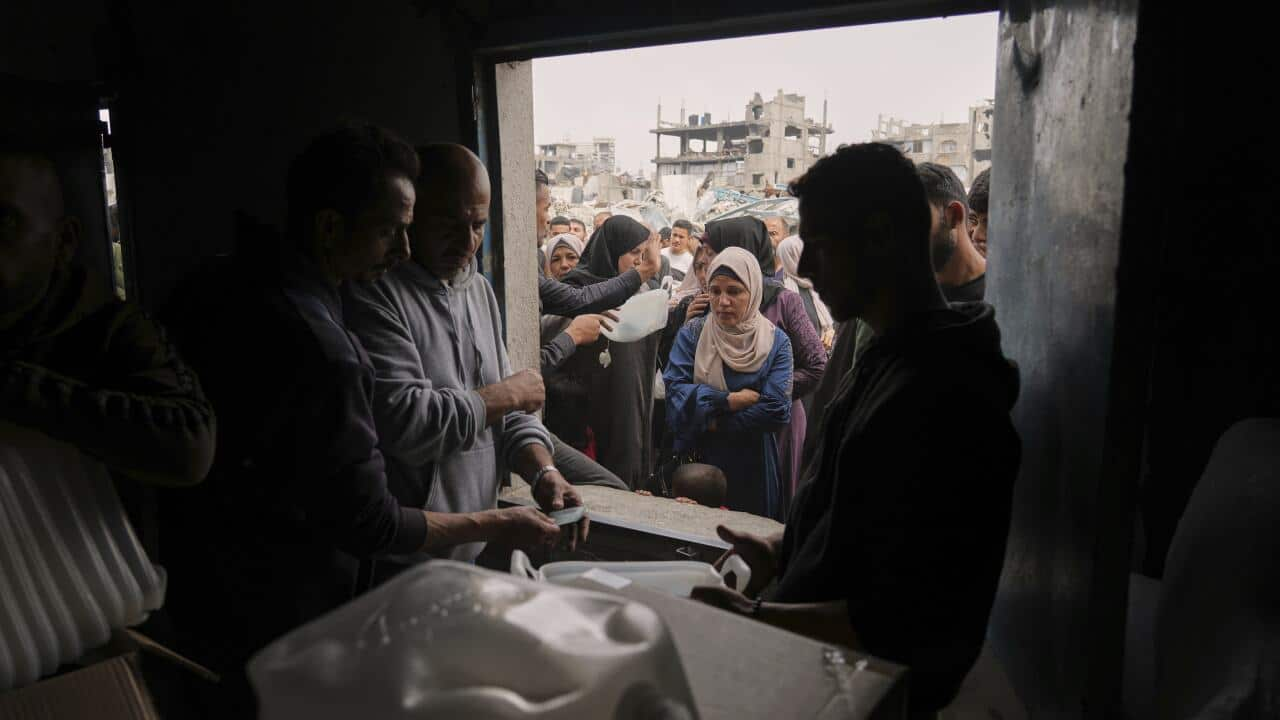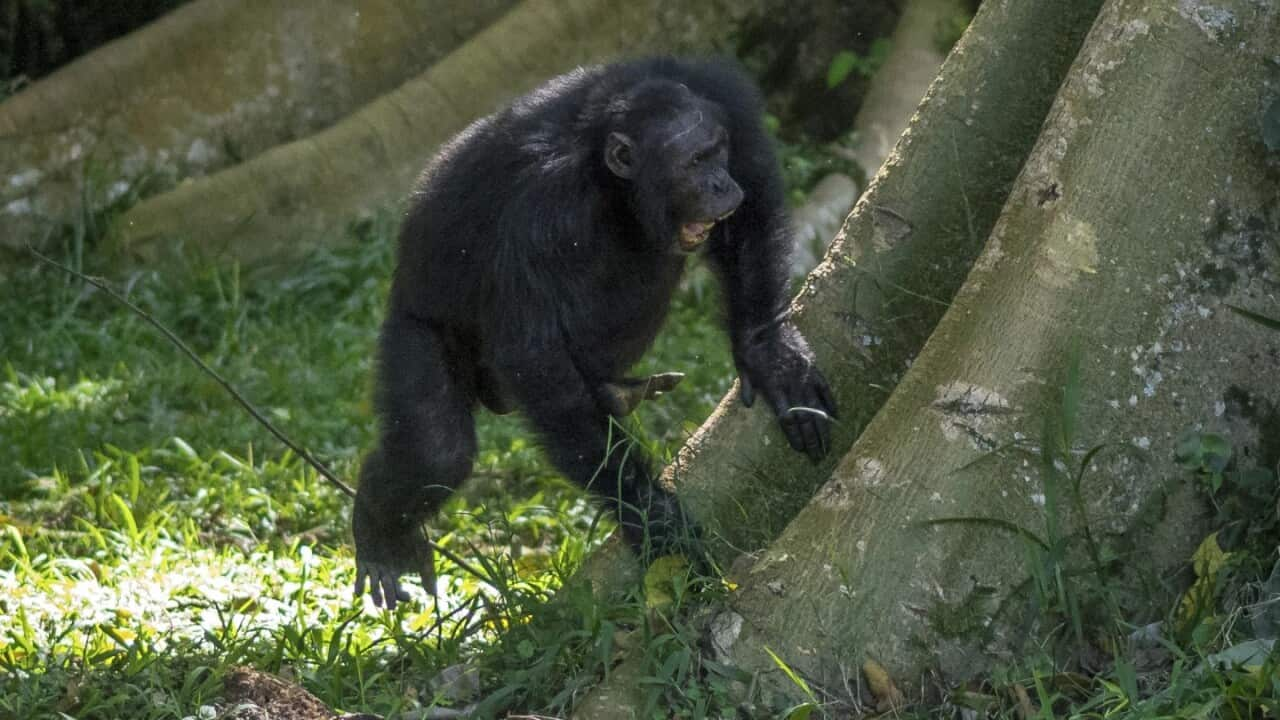TRANSCRIPT:
It's been almost six weeks [[39 days]] since food was last allowed into Gaza.
Israel ordered a blockade on aid and basic supplies entering the enclave on March the 2nd, and the United Nations says the already dire humanitarian crisis in Gaza has rapidly deteriorated since then.
Juliette Touma is the communications director for the U-N Palestinian refugee agency, UNRWA.
She says basic supplies are quickly running out.
"Prices of commodities have exponentially increased over the past one month plus since the Israeli authorities put the siege on the Gaza Strip. Every day that Gaza goes without basic supplies, including food, it means babies, children are going to bed hungry. Every day without these basic supplies, Gaza inches closer towards very, very deep hunger.”
Israel has said it won't allow the entry of any goods and supplies into Gaza until Hamas releases all the remaining hostages.
Israel denies the blockade has caused food shortages, instead saying Hamas is stealing supplies.
Jonathan Whittall is the head of the Office for Coordination of Humanitarian Assistance in Gaza.
He says there are systems in place to ensure Hamas is not diverting aid away from the civilians who need it.
"We have a humanitarian system. We have extremely complex and rigorous monitoring to avoid, to make sure that aid is not being diverted. And that's in place throughout our operations. So for the humanitarian community in Gaza, I can confidently say that that we have no evidence of aid being diverted from our programs and operations and to other places."
U-N Secretary General spokesman Stephane Dujarric says the job for humanitarian workers in Gaza is becoming increasingly difficult.
He says the key barrier to delivering aid is the expanding Israeli military operations.
"OCHA reports that humanitarian operations remain severely constrained. That is due to the expanding military operations as well as ongoing blockade of humanitarian aid and commercial goods, which has lasted now for five weeks. There have also been deadly attacks on aid workers and humanitarian facilities. Meanwhile, just since yesterday, the Israeli authorities have denied 8 of our 14 attempts by aid workers to coordinate access to people needing urgent assistance. Overall, since the intensification of the hostilities on March 18th, the authorities denied 68 per cent of our 170 attempts to coordinate - attempts to reach people across the Gaza Strip and to assist them with humanitarian assistance."
Meanwhile, an Israeli attack has killed at least 29 people in a strike on a multi-level residential building in northern Gaza.
Health authorities in Gaza say eight women and eight children were among those killed in the strike.
The Israeli military says the strike was targeting a senior Hamas militant but has not yet provided a name or any further details.
Spokesman for the Gaza Civil Defence Mahmoud Basal says entire families are missing.
"Twenty three martyrs arrived to Al-Ahli Arab Hospital, we are talking about more than 60 injured. There are nearly 19 people missing from the Abu Amsha family until this moment. Other families have nearly 15 missing people as well in this massacre carried out by the Israeli occupation forces against innocent unarmed civilians."
Earlier this week, Hamas launched 10 projectiles toward southern Israel, with half landing inside southern Israel and the remainder intercepted.
Israeli medics say one Israeli was wounded by falling debris.
Now, Israel's Defence Minister Israel Katz says troops are seizing larger areas in the Palestinian territory.
Mr Katz says troops are making Gaza "smaller and more isolated" through expanding military assaults and the seizure of large parts of the Palestinian territory.
United States President Donald Trump earlier this year proposed a plan to relocate Gazans and develop Gaza into what he called a "Riviera of the Middle East".
Following a meeting with Mr Trump, Israeli Prime Minister Benjamin Netanyahu says Israel intends to follow through with the U-S president's proposal for Gaza.
:"A second issue we discussed is Gaza. We are determined to eliminate Hamas, and at the same time we are determined to return all our hostages. And the president looked at me and said to the reporters there: 'This man is working all the time to free the hostages.' I hope that with this he has shattered the lie that is spread all the time in the news that I am not working for them, that I do not care. I care, and I am doing it, and we will succeed in it. We also talked about President Trump's vision, because we are currently in contact with countries that are talking about the possibility of absorbing a great many Gazans. This is important, because in the end this is what needs to happen."
The proposed U-S plan for Gaza's future has been condemned by rights organisations, Palestinians, various Jewish groups, and other governments, who say it could constitute ethnic cleansing.
The health ministry in Gaza says Israeli attacks have killed over 1,400 ((at least 1,482)) Palestinian people since the end of the ceasefire.













